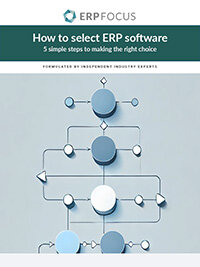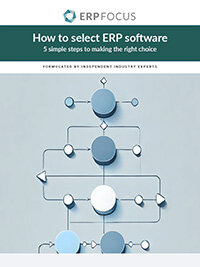3 common mistakes when auditing ERP
We have all heard the general rule that you have to measure in order to manage – and your ERP system is no exception. An ERP audit is one important tool we can use to achieve this measurement. Audits will be conducted with different purposes from time to time. You might look at security, return on investment or database health over the life of your ERP. Make ERP audits a regular part of your organization's activities and avoid these three mistakes to ensure you achieve the best results.
1. Waiting for an emergency
The board of directors meets tomorrow. You just learned your balance sheet is out of balance and it will take all day to repair the damage before you can begin normal monthly entries. This problem arose because a young purchasing clerk was exploring the ERP system and accidentally made a one-sided entry. Are they the only person with access beyond the required security level? What could a former employee do to your organization if their system access was not canceled on the day of their separation? These are questions that would have been answered in any proactive ERP audit.
Recommended reading: ERP Selection Survival Guide - Select the right ERP for your business
2. Irregular and infrequent auditing
Your business constantly changes. You develop new products and new processes as you continually improve. Your ERP has hundreds of configuration and control settings. Even if we assume they were once perfectly set, could they be changed to optimize the flow of work and information needed today? While your business is improving, so is your ERP. Programmers are working right now to make improvements based on requests from customers and technology upgrades. Some of these changes will help your business but if you don't audit ERP frequently and regularly, you will not see the full benefit of many of them.
3. Failing to audit user competencies and training
When you first installed your ERP you trained all your users to use the system well. You might have even hired professional trainers to carry out your training plan. How well have users been trained since? Many were probably trained by other users who may have passed along their own bad habits or workarounds. Some may have had to figured out the system as best as they could on their own. An ERP training audit will check the level of expertise your users have and help match that to the level they should have. The audit will also determine areas where users have developed more efficient processes that should be part of your ongoing training process.
These are just a few reasons for ongoing ERP audits. The important factor is that you audit your ERP system regularly to keep your tools as sharp as they need to be and optimize your efficiency and effectivity.
Free white paper

How to Select ERP
Learn to select your ERP in 5 easy steps by following our expert's advice




